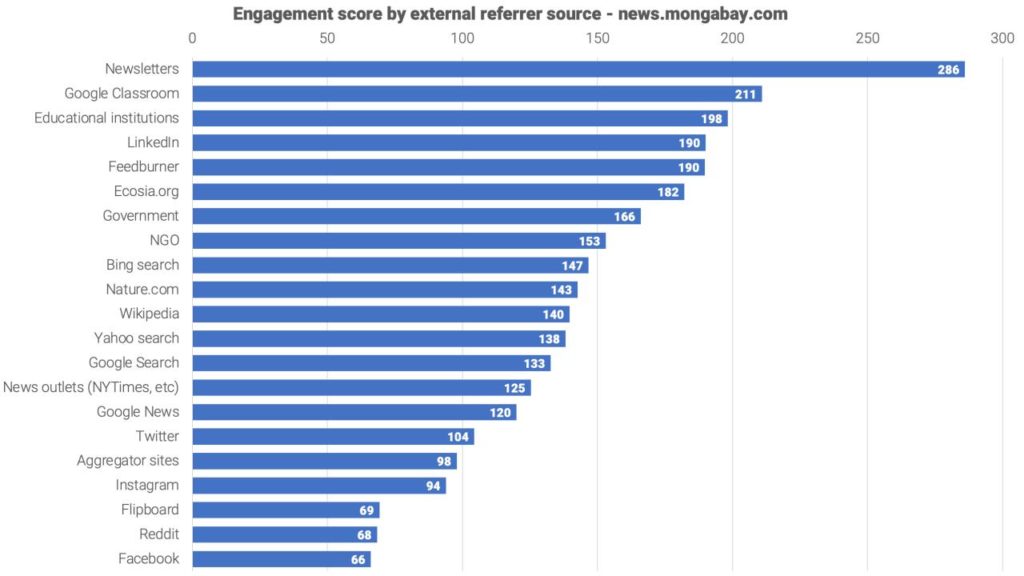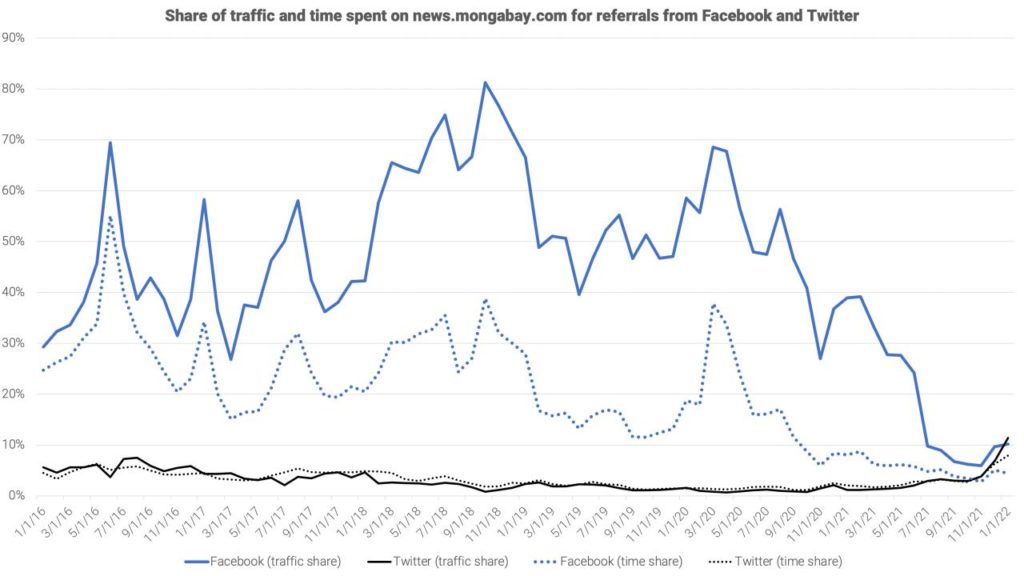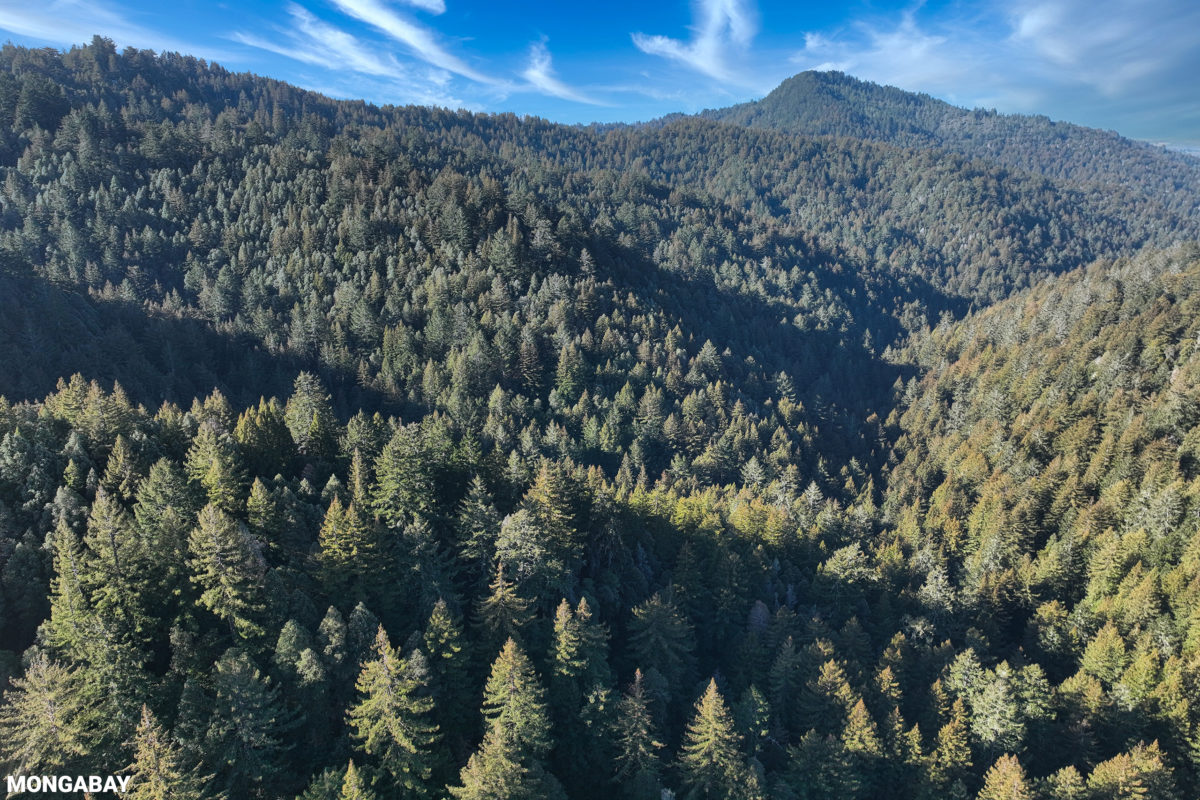Meta is getting a lot of attention this week after it reported losing users for the first time in its history, resulting in its stock market valuation plunging $230 billion in a single day.
As a nonprofit news organization that once relied heavily on Meta’s platforms for distribution – especially Facebook – this news isn’t a big surprise.
Putting aside the societal issues associated with Meta’s platforms, we’ve seen the quality of engagement via Facebook deteriorate in recent years: For Mongabay, Facebook referrals now consistently rank among the worst-performing of all website traffic sources in terms of time spent on page, bounce rate, scroll depth, and pages visited per session.

But worse, Facebook regularly blocks Mongabay posts from its platform: We recorded more than 100 instances of content blocks and removals between mid 2020 and early 2021. These articles broke none of Facebook’s community guidelines: These were news stories about climate science, wildlife trafficking, conservation efforts, illegal mining, and deforestation. Indeed, when we went through the cost of instigating a manual review process, these posts were nearly always reinstated once a human looked at them. We’ve heard similar stories from other environmental news publishers.
Still, the volume of readership we got via Facebook made it hard to abandon. In some markets, as much as 80% of our external referral traffic was coming via Facebook at its peak.

By early 2021, we had reached our breaking point with Facebook and decided to drastically scale back our efforts to engage audiences via the platform. We reallocated staff time spent on managing Facebook to other channels (newsletters, Twitter, YouTube, syndication partners, etc) and ended Facebook marketing for our Global English news.
The result of this shift was a big drop in traffic from Facebook but a massive increase in overall time spent on our websites. For news.mongabay.com alone, Facebook referrals dropped by more than 18 million user sessions year over year, yet total aggregate time spent on that section rose 77%, suggesting that a lot of Facebook’s referrals represent “empty pageviews”. The results were similar for the India (English) and Indonesian bureaus, which also substantially reduced their levels of effort with Facebook.
Today Mongabay is less dependent on Facebook than any time in the past eight years and we’re seeing greatly increased engagement as a result, which we believe will translate to greater real-world impact of our nonprofit journalism in the long-run.
Because of this growth, I’m happy to share that we’ll be putting more resources into the content we produce on channels like YouTube and rolling out new ways to engage with our reporting in the coming months.

Question: Why hasn’t Mongabay completely left Meta platforms, shutting down its Facebook and Instagram accounts?
In many of the countries where Mongabay has a significant reporting focus — biodiverse countries with high rates of land use change and other environmental threats — a disproportionate share of people rely heavily on Facebook, often because Facebook access via mobile phones is subsidized by Facebook or Facebook is seen as “the Internet”. Since our goal is to inform people, we feel Mongabay still needs to have a presence on platforms that most people use to get information. Examples of where this is the case for our global English content include several countries in South and Southeast Asia (e.g. Nepal, Cambodia, Myanmar, Bangladesh, Sri Lanka, the Philippines) and East Africa (especially Kenya).

